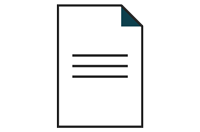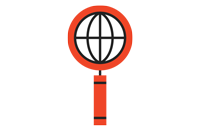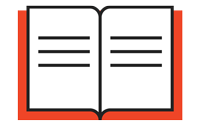Recent Publications & Learning
Doing development differently starts with better evidence and learning.
Doing development differently starts with better evidence and learning.

Developed by the Evidence Consortium on Women’s Groups, this brief presents emerging evidence from studies in diverse African contexts— with a deep dive into Nigeria and Uganda—on how COVID-19 has affected Savings Groups and how these groups have helped mitigate the pandemic’s negative consequences in sub-Saharan Africa.
Read More
Women’s collectives are often thought of as a critical source of social solidarity and resilience at the grassroots level. But what if women’s collectives could be leveraged to target and help unlock the economic empowerment of rural women at scale? This blog post explores the potential transformative role women’s collectives can play in expediting women’s economic and social empowerment globally, and how the Bill & Melinda Gates Foundation is targeting these groups to address structural barriers to gender equality.
Read More
The Feed the Future Advancing Women’s Empowerment (AWE) program team spoke with Wade Channell, senior economic growth advisor for gender with USAID about how we can leverage the enabling environment to achieve scale in women’s empowerment.
Read More
Insights and examples of approaches to scaling women’s empowerment from the Feed the Future Advancing Women’s Empowerment (AWE) program team, particualrly relating to gains in agricultural productivity, resilient and sustainable livelihoods and nutrition.
Read More
This background note provides guidance for implementers and designers to apply a social norms lens onto a persona tool. It is to be used to develop a more nuanced understanding of women and the social norms that impact their ability to interact with financial services.
Read More
We kick off the first of a two-part blog series – co-produced by FHI 360 and MarketShare Associates – on Rethinking the Future of Women’s Empowerment in response to the global pandemic with exploring COVID-19’s impact on women’s economic engagement in Egypt.
Read More
The influence of gendered social norms has not been systematically analyzed or widely incorporated into financial inclusion programming. This diagnostic aims to identify social norms that affect how women access, use, and benefit from financial services. The goal is to guide practitioners toward a better understanding of the underlying dynamics. By identifying actionable insights, practitioners can design interventions that target the root causes of consumer behaviors that limit the potential benefits of financial inclusion interventions for women.
Read More
Tools and resources for a gendered approach to monitoring, evaluation and learning (MEL) during the COVID-19 pandemic compiled by the Feed the Future Advancing Women’s Empowerment (AWE) program team.
Read More
This blog, co-written by MEDA and MarketShare Associates, summarizes key learnings from INNOVATE’s three-year initiative assessing the potential of non-traditional finance to enable adoption of smallholder agricultural innovations in South Asia, South America and East Africa. The blog shares insights on customer centricity, smallholder products and services, smallholder household decision-making, and policy and regulatory transformation. The authors also provide recommendations for implementers, policy makers, donors, and the private sector to re-think how programs and policies are implemented, and how products and serviced are designed and delivered.
Read More
This blog builds on MarketShare Associates' work supporting the Arab Women’s Enterprise Fund (AWEF) to stimulate increased women’s economic empowerment through a market systems approach in Jordan and Egypt. Drawing from AWEF’s Practitioner Learning Brief, Making Digital Finance Work for Women in the MENA Region (2020), the authors explore opportunities and challenges of Digital Financial Services (DFS) and highlight eight lessons on how to design and implement interventions that can pave the way for women’s digital financial empowerment across the Middle East and North Africa (MENA) region and more widely.
Read More